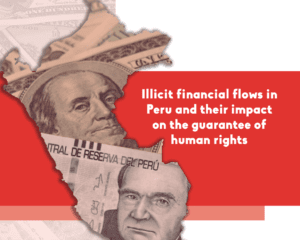Tax-related illicit financial flows – and the impacts on progressive taxes
International tax dodging remains a major concern – both in developed and developing countries. In the report State of Tax Justice 2023, Tax Justice Network has estimated that governments lose around US$480 billion annually due to international tax abuse. Of this amount, US$311 billion stems from tax abuse by multinational corporations and US$169 billion from offshore tax evasion by wealthy individuals. While tax evasion refers to practices that are outright illegal, corporate tax dodging often happens through tax avoidance, meaning practices whereby the spirit of the law is circumvented through methods that might be legal from a technical perspective.
Tax and the environment
In the context of reaching the global environmental objectives, there is a growing debate about how tax systems can contribute to reducing environmental harm, including whether polluting activities should be discouraged with targeted taxes. However, rather than creating disincentives for pollution the current tax system in some cases includes loopholes and incentives that can result in heavily polluting activities being taxed at lower – rather than higher – rates than other activities.
Global tax governance
Currently, there is no truly global agreement on international tax matters. For the last half a century, the OECD has led several processes to develop standards that are often referred to as ‘global’, but the processes through which they were developed have been far from globally inclusive.
For well over a decade, the developing country negotiating group, G77, has been calling for an intergovernmental tax process to be set up at the UN to ensure that all countries are able to participate in global tax governance on an equal footing. Until quite recently, this proposal was consistently blocked by OECD countries, which instead advocated for the OECD to continue leading the development of global tax standards.
However, over the last few years, there has been a rapidly growing recognition of the fact that action is needed to strengthen the inclusiveness and effectiveness of global tax governance. At the end of 2022, all UN member states agreed – by consensus – to a landmark UN resolution on international tax cooperation. This resolution, which had been put forward by the Africa Group at the UN General Assembly, mandated an intergovernmental tax negotiation to be initiated under the auspices of the UN, where all countries would be able to participate on an equal footing.
In 2023, the Africa Group followed up with a resolution that proposed the negotiation of Terms of Reference for a new UN Framework Convention on International Tax Cooperation. In a historic vote at the 2nd Committee of the UN General Assembly, the resolution was adopted with an overwhelming majority, namely 125 votes in favour, 48 votes against and 9 abstentions. Following the adoption of the resolution, an ad hoc committee was established to begin the negotiations of the Terms of Reference, and in February 2024, at the organisational session of the new committee, all UN member states reached consensus on a roadmap towards finalising the Terms of Reference by the end of August 2024, in line with the mandate of the 2023 resolution.




